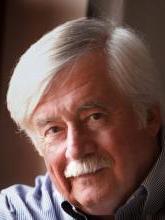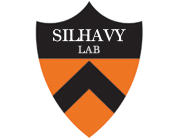
Thomas J. Silhavy

Princeton University
Thomas J. Silhavy
Thomas J. Silhavy is the Warner-Lambert Parke-Davis Professor of Molecular Biology at Princeton University. Silhavy is a bacterial geneticist who has made fundamental contributions to several different research fields. He is best known for his work on protein secretion, membrane biogenesis, and signal transduction. Using Escherichia coli as a model system, his lab was the first to isolate signal sequence mutations, to identify a component of cellular protein secretion machinery, and an integral membrane component of the outer membrane assembly machinery, and to identify and characterize a two-component regulatory system. Current work in his lab is focused on the mechanisms of outer membrane biogenesis and the regulatory systems that sense and respond to envelope stress. He is the author of more than 200 research articles and three books.
Professor Silhavy received his BS in Pharmacy (summa cum laude, 1971) from Ferris State College and his MS (1974) and PhD (1975) in Biological Chemistry from Harvard University. As a graduate student with Winfried Boos, he helped characterize the role of periplasmic binding proteins in sugar transport. As a postdoctoral fellow with Jonathan Beckwith at Harvard Medical School, he helped establish gene fusions as an experimental tool. He served as an Instructor of Microbiology at Harvard Medical School for two years, and he worked at the NCI Frederick Cancer Research Facility for five years where he was Director of the Laboratory of Genetics and Recombinant DNA. He came to Princeton in 1984 as a founding member of the Department of Molecular Biology.
In recognition of his scientific accomplishments, Silhavy was awarded an honorary Doctor of Sciences degree from his alma mater, Ferris State College (1982); was elected Fellow of the American Academy of Microbiology (1994); the American Association for the Advancement of Science (2004); the American Academy of Arts and Sciences (2005); and he is a member of the National Academy of Sciences (2005) and an associate member of EMBO (2008). In 1999, he received an NIH MERIT award; he received the Novitski Prize for creativity from the Genetics Society of America in 2008; and the American Society for Microbiology (ASM) Lifetime Achievement Award in 2016. His commitment to teaching is evidenced by the President's Award for Distinguished Teaching at Princeton (1993), the Graduate Microbiology Teaching award from ASM (2002), and the Graduate Advising Award at Princeton (2003).

